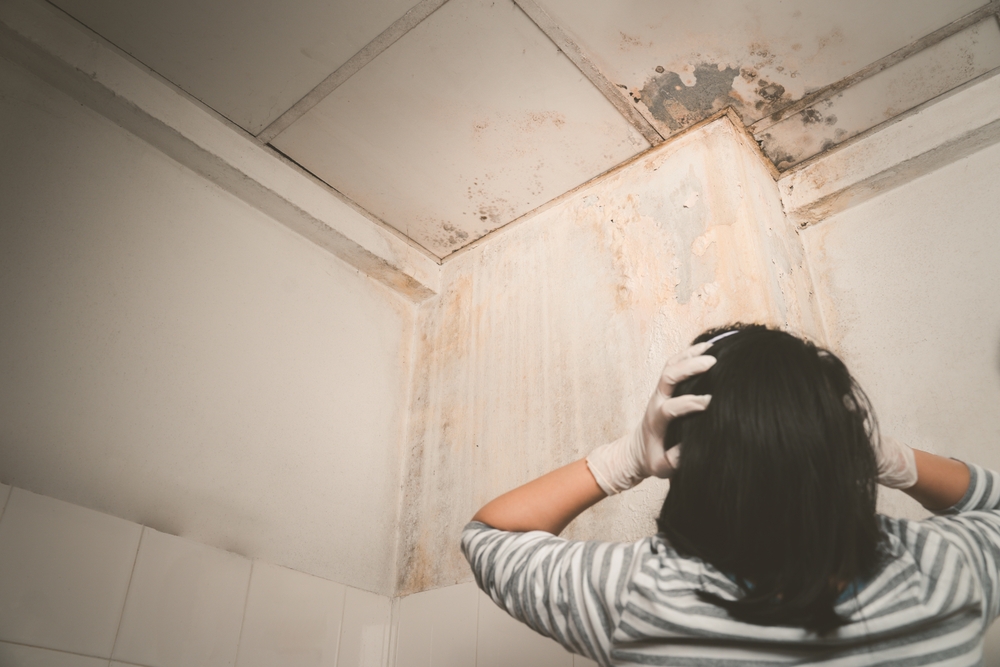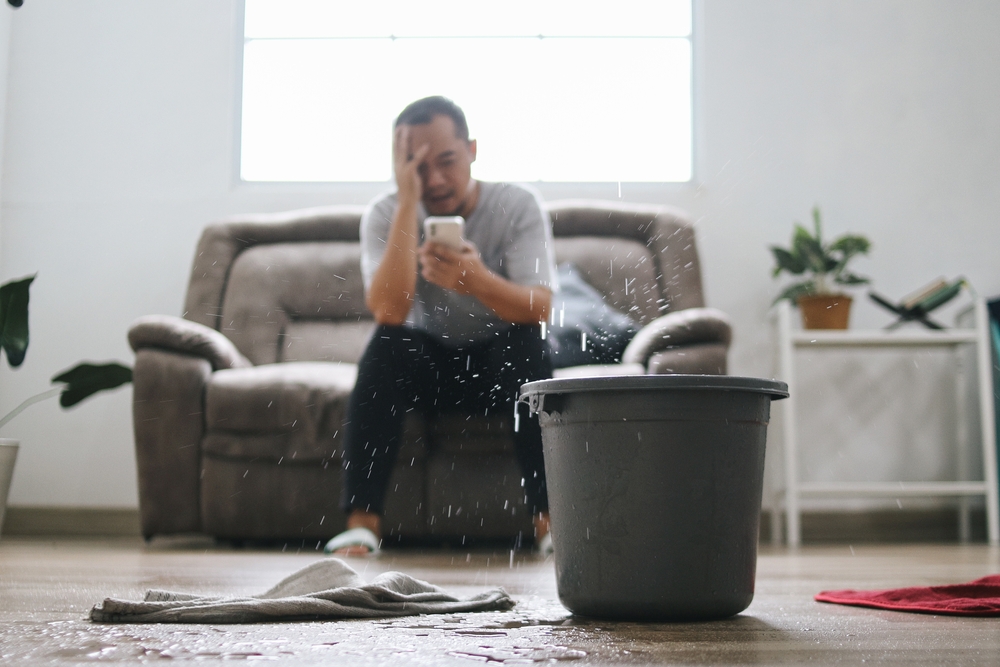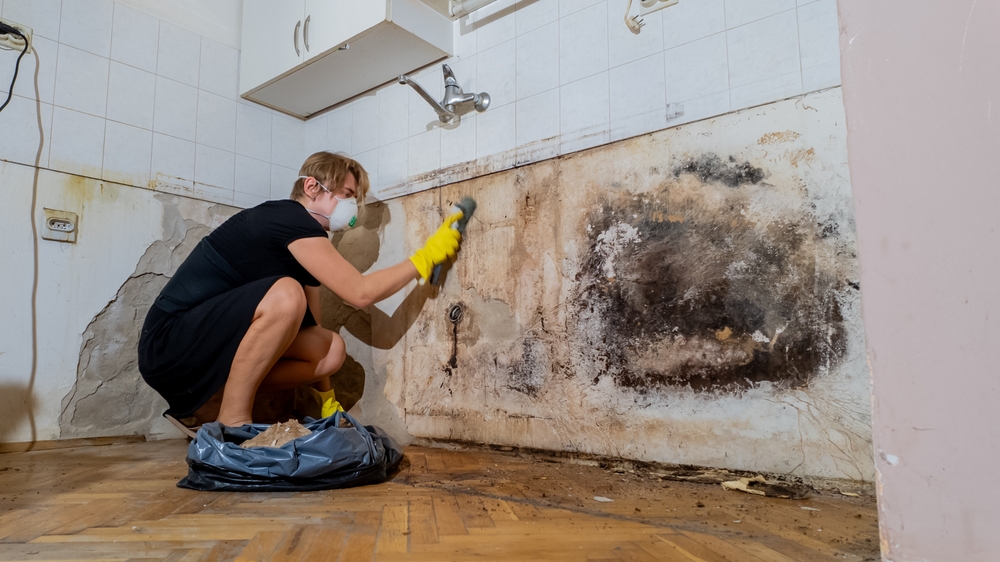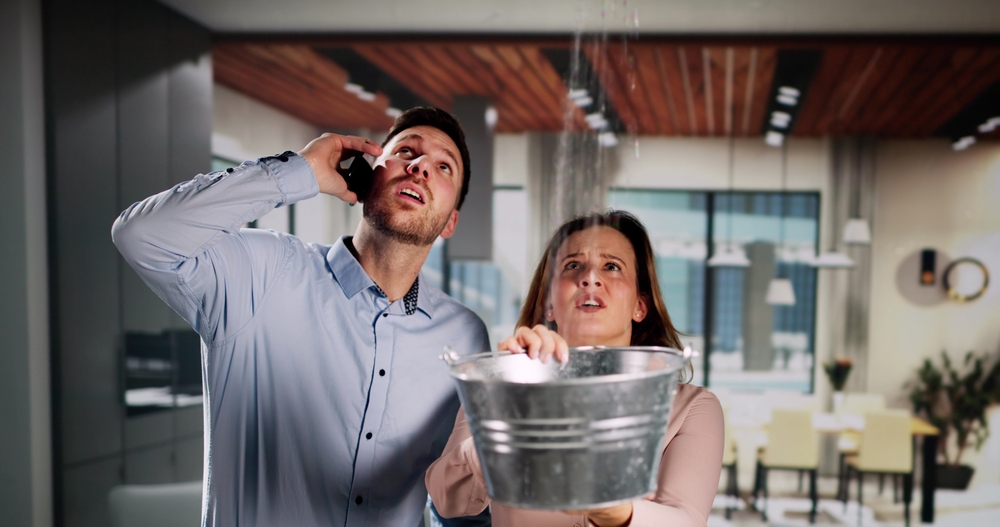Philadelphia boasts a rich past and elegant, older buildings. But many Philadelphia apartments are particularly susceptible to water damage from these older structures as well as from aging infrastructure and regular precipitation. Whether your role is renter, landlord, or property manager, knowing the typical water damage problems in these buildings will help you to prevent more damage and maintain everyone’s safety. Here we will discuss common water damage problems in Philadelphia apartments, their origins, and doable solutions to stop and minimize them.
Philadelphia’s appeal presents certain special difficulties. Though many of the city’s old apartment buildings have endured the test of time, they also suffer from deteriorating roofs, antiquated plumbing, and general wear-and-tension that may cause water damage. Frequent storms and lots of rain make water intrusion a common and major issue.
Taking quick care of water damage is crucial. Unchecked even little leaks can cause major structural damage, mold growth, and health hazards. Tenant and property managers who know the underlying causes and identify early warning indicators can act pro-actively to safeguard their investments and residences.

Common Water Damage Problems in Philadelphia Apartments
Philadelphia apartment water damage usually shows itself in a few distinct forms. Here are the main problems you could run across:
1. Roof Leaks
Causes:
- Aging Roofs: Many Philadelphia flats have roofs that have been in place for decades. Shingles eventually wear out and protective layers break down, increasing leaks’ likelihood.
- Poor Maintenance: Inadequate or sporadic roof repair can let small problems become catastrophic ones.
- Storm Damage: Strong winds and heavy rain during storms can knock down or damage roofing materials, therefore causing water seep-through.
Signs to Look For:
- Water Stains on Ceilings: Common signs of a roof leak on ceilings are water stains or discoloration there.
- Dripping Water: Especially during or after rain, visible drips or a consistent trickle of water indicate that water is likely finding its way inside the structure.
- Mold Growth: Constant wetness makes the perfect habitat for mold to grow on ceilings and walls.
2. Plumbing Issues
Common Problems:
- Leaky Pipes: Aging or rusted pipes can cause leaks that gently trickle water behind walls or onto flooring.
- Clogged Drains: Clogged drains could cause localized water damage by allowing water to back up and overflow.
- Overflowing Toilets: Malfunctioning or overflowing toilets can rapidly cause a water damage problem that compromises several regions of an apartment.
How They Lead to Damage:
Over time, even minor slow leaks from plumbing can saturate building components. Water from these leaks can compromise insulation, weaken structural elements, and give mildew and mold a home.
3. Water Intrusion
External Sources of Water:
- Basement Flooding: Many older structures feature basements especially prone to flooding during heavy rain.
- Rising Groundwater: High water tables in some Philadelphia neighborhoods can allow water to seep into the foundation of a building, therefore affecting flooring and walls.
Impact on Buildings:
Water penetration from these outside sources can cause major damage including weakening foundations, destroying walls, and producing continuous moist conditions that encourage mold development.
4. Mold Growth
How It Develops:
Since mold grows best in damp surroundings, any water damage could act as a trigger. Once mold starts to grow, it can swiftly cover the apartment.
Health Risks:
Mold exposure can cause allergic reactions, breathing difficulties, and other health problems. For renters, particularly those with pre-existing medical concerns, mold can be a major issue.
Causes of Water Damage in Philadelphia Apartments
Knowing the fundamental reasons of water damage will enable property managers and renters to implement better prevention actions. The main elements causing water damage in Philadelphia apartment buildings are:
1. Aging Infrastructure
Many of Philadelphia’s old buildings feature deteriorating infrastructure. Over time, old roofs, antiquated plumbing systems, and declining building materials are all prone to breakdown. These elements raise a leak and water damage risk.
2. Severe Weather
Philadelphia has its fair share of violent storms, lots of rain, even sporadic flooding. These weather events can overwhelm current drainage systems, damage roofs, and cause water infiltration in many facets of a construction.
3. Lack of Maintenance
Prevention of water damage mostly depends on regular maintenance. Little problems like blocked gutters or little leaks can become big water damage concerns without regular inspections and quick repairs.
4. Tenant Negligence
Although structural and environmental causes of many water damage problems exist, tenant conduct can also play a role. Over time, improper appliance use, neglect of small leaks, and failure to document problems can all aggravate water damage.

Mitigating and Preventing Water Damage
There are responsibilities both for tenants and property managers in avoiding water damage. For every group, these are some practical guidelines:
Tenant Responsibilities
- Report Issues Promptly:
Tell your landlord or property management right once if you see any indicators of water damage, like stains on the ceiling, damp walls, or a musty smell. Early intervention helps little issues from developing into more serious repairs. - Use Appliances Responsibly:
Use appliances sensibly; avoid running dishwashers, sinks, and washing machines full-blast. Check these appliances often for leaks; clean filters to guarantee correct drainage. - Prevent Drain Clogs:
Clear drains by correctly disposed of fat and big food particles. Check and wash sink strainers and drain traps often.
Landlord/Property Manager Responsibilities
- Conduct Regular Inspections:
Plan regular roof, plumbing, and foundation inspections to find early water damage indicators. Look for wear and tear indications that can cause leaks. - Perform Preventative Maintenance:
Many water damage problems can be avoided before they begin by means of proactive maintenance including roof repairs, plumbing system updates, and guarantee of appropriate drainage. - Address Problems Immediately:
When a water damage claim is made, respond fast to evaluate and fix the damage. Delays can cause more thorough repairs and later on more expenses.
Additional Homeowner Tips
For people who own their flats or handle property management, think about these extra actions:
- Install High-Quality Gutters and Downspouts:
Install premium gutters and downspouts to assist divert rainfall away from the structure, therefore lowering the water infiltration danger. - Consider a Sump Pump:
A sump pump can be a good investment to keep water out of places likely to basement flooding. - Use Moisture Absorbers:
Use moisture absorbers to assist lower the humidity in damp surroundings, therefore reducing the mold danger.
Conclusion
Commonly affecting Philadelphia apartment water damage include aged infrastructure, extreme weather, poor maintenance, and even tenant neglect. Whether it’s water incursion, mold development, plumbing problems, or roof leaks, the effects can be expensive and maybe dangerous for health.
Key Takeaways:
- Early Detection is Critical:
Regular inspections and quick reporting of problems help to stop little leaks from turning into major damage. - Preventative Maintenance Pays Off:
Both renters and property managers should commit time and money to consistent maintenance since it pays off. Little deeds like keeping gutters, looking for leaks, and updating aging systems can add a lot of difference. - Work Together:
Tenants, owners, and property managers have to cooperate. Tenants should notify property managers of any indicators of water damage right once, and these should be addressed swiftly.
If you rent a Philadelphia apartment, stop to look for any evidence of water damage in your living quarters. Report any problems straight forwardly to your landlord or property manager without delay. Plan frequent inspections and preventative maintenance for landlords and property managers to protect their structures. Working together, we can guarantee safer, healthier living conditions and lower water damage hazards.
Philadelphia Restoration Services
https://www.google.com/maps?cid=3399342399556699153
+1 267 668 0013
https://philadelphiarestorationservices.com/


